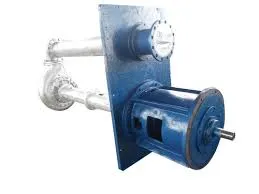steam boiler pressure
Understanding Steam Boiler Pressure A Critical Aspect of Industrial Operations
In many industrial applications, steam boilers play a pivotal role in generating steam for heating, processing, and power generation. One of the most crucial parameters in the operation of a steam boiler is the boiler pressure. Understanding boiler pressure is essential not only for the efficient functioning of the system but also for ensuring safety and compliance with regulatory standards.
What is Boiler Pressure?
Boiler pressure is the pressure exerted by steam within the boiler. This pressure is vital because it governs the temperature of the steam produced. According to the principle of thermodynamics, higher pressure results in higher temperature steam, allowing for more efficient energy transfer in various applications. Boiler pressure is typically measured in pounds per square inch (psi) or bar, with most industrial steam boilers operating within a pressure range of 15 psi to over 1000 psi.
Importance of Maintaining Proper Boiler Pressure
1. Efficiency Maintaining the appropriate boiler pressure is crucial for the efficiency of the boiler system. If the pressure is too low, the boiler may not produce sufficient steam for operations, requiring additional fuel and leading to increased operational costs. Conversely, excessively high pressure can result in increased wear on boiler components, leading to premature failure and costly repairs.
2. Safety Safety is a primary concern in any industrial setting. Steam boilers operate under high pressure, making them potentially dangerous if not managed correctly. Overpressure can lead to catastrophic failures such as explosions, which can cause significant property damage and pose serious risks to worker safety. Therefore, pressure relief valves and safety controls are integral components of boiler systems to prevent overpressure conditions.
3. Regulatory Compliance Many industries are subject to stringent regulations regarding steam boiler operations. Organizations such as the American Society of Mechanical Engineers (ASME) set codes and standards that outline the requirements for boiler pressure, safety devices, and operational procedures. Compliance with these regulations is not only critical for safety but also for legal and insurance purposes.
Factors Influencing Boiler Pressure
steam boiler pressure

Several factors influence the pressure within a steam boiler
- Heat Input The amount of heat supplied to the boiler directly affects the steam pressure. Increased combustion of fuel or enhanced heat transfer efficiency can result in higher pressure.
- Steam Demand The pressure within the boiler must correspond to the steam demand of the system. High steam demand can lead to a temporary drop in pressure, while low demand may cause an increase.
- Water Quality The quality of the water used in the boiler can also impact pressure. Impurities and sediments can affect the efficiency of steam generation and may lead to scaling, which reduces heat transfer and boiler efficiency.
Monitoring and Controlling Boiler Pressure
Maintaining optimal boiler pressure involves continuous monitoring and control. Advanced boiler management systems are equipped with sensors that continuously measure pressure and other critical parameters. Operators can use this data to make real-time adjustments to the boiler's operation, ensuring that it operates within the desired pressure range.
Pressure gauges, automated control valves, and safety relief valves are essential instruments in managing boiler pressure. Regular maintenance and testing of these components are critical to ensuring their reliability and function. Furthermore, operators should be trained and knowledgeable about the operation and potential hazards associated with steam boilers.
Conclusion
In summary, steam boiler pressure is a fundamental aspect of industrial operations that directly affects efficiency, safety, and compliance with regulations. Proper management of boiler pressure involves understanding the factors influencing pressure, continuous monitoring, and regular maintenance of safety devices. By prioritizing these elements, industries can ensure effective and safe steam production, optimizing their operations while safeguarding employees and the environment. As technology continues to advance, the integration of smart systems in boiler management will further enhance the ability to control and monitor steam boiler pressure, leading to improved operational safety and efficiency.
-
Top Electric Steam Boiler Manufacturers | AI EfficiencyNewsAug.04,2025
-
Efficient Thermal Oil Boilers with AI Optimization | Superior PerformanceNewsAug.03,2025
-
High-Efficiency OEM Steam Boilers w/GPT-4-TurboNewsAug.02,2025
-
Advanced Electric Steam Boiler Manufacturers | GPT-4 Turbo AINewsAug.01,2025
-
Custom Steam Boilers Manufacturer | AI-Enhanced EfficiencyNewsJul.31,2025
-
Top Electric Steam Boiler Makers | AI-OptimizedNewsJul.31,2025

